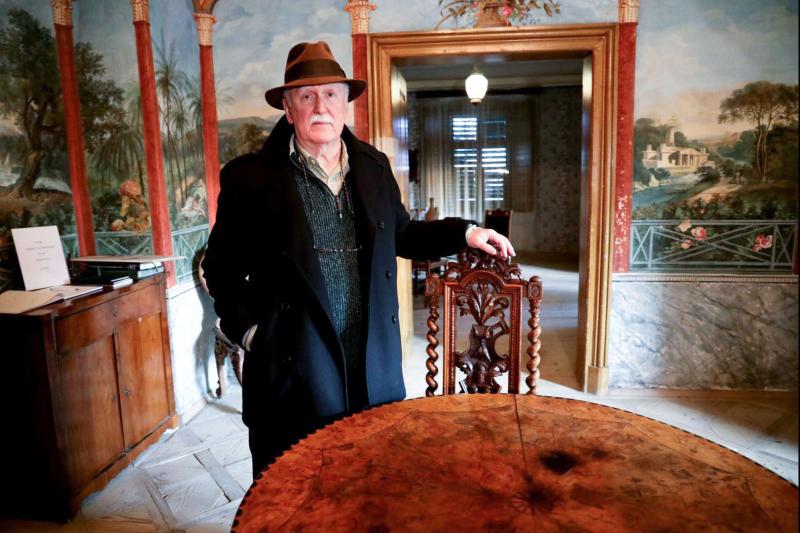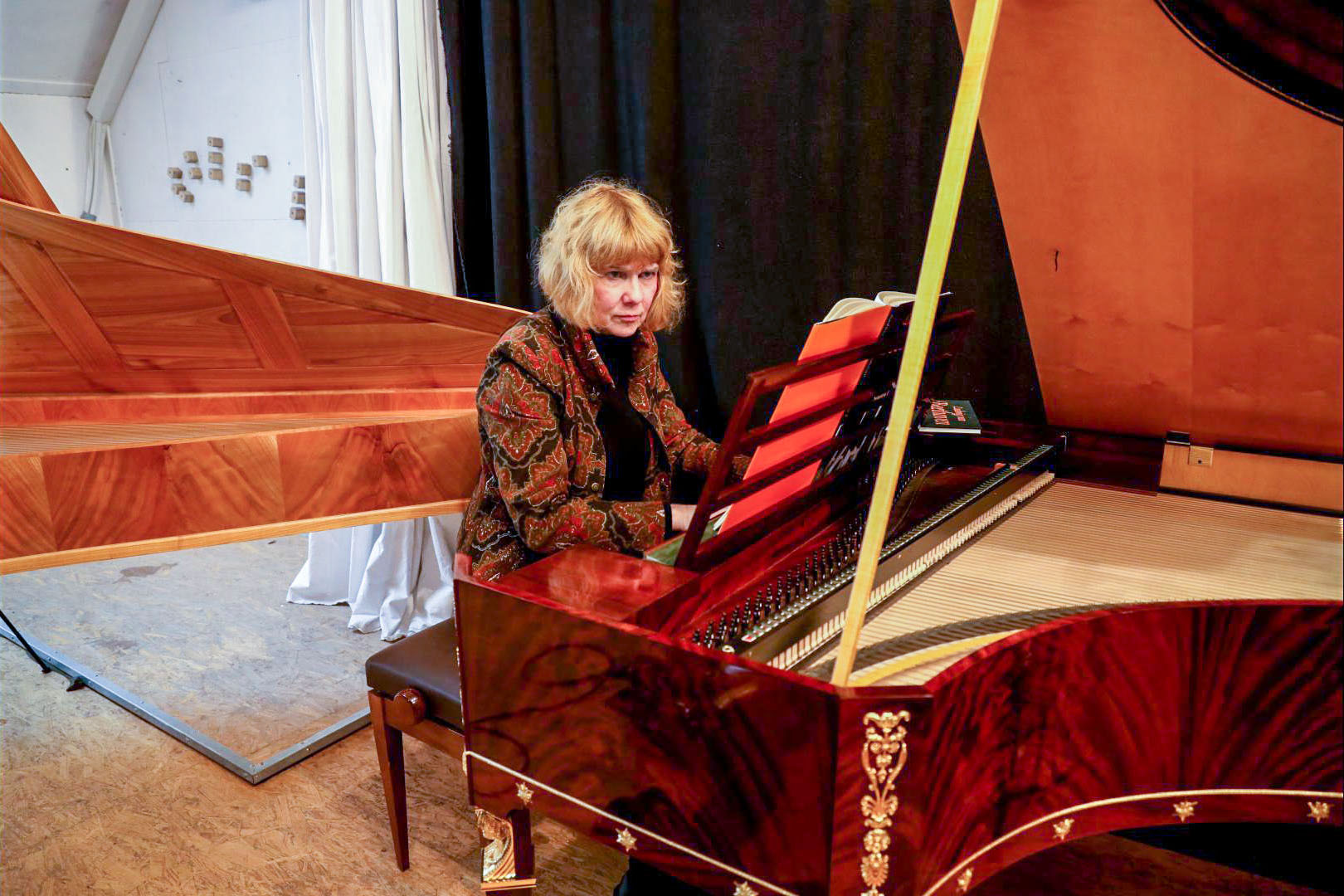Being Beethoven, BBC Four review – from grubby kid to grumpy genius | reviews, news & interviews
Being Beethoven, BBC Four review – from grubby kid to grumpy genius
Being Beethoven, BBC Four review – from grubby kid to grumpy genius
Attention-span anxiety yields more insight into man than music

Documentaries like this one make me sentimental for a time, until about 25 years ago, when classical music was a more or less weekly presence on terrestrial TV.
The “we” in this instance belongs to the British. Outside Japan, Beethoven has nowhere been more celebrated to a degree bordering on mania, even in his own Austro-German lands, even surviving wartime antagonisms and their present dismal resurgence. Beyond the music itself, perhaps the heroic failure of his personal life, the protestant drive for self-betterment, the colossal chip on his shoulder that left him congenitally inclined to bite the hand that fed him, all speak to elements of our collective psyche. According to the Viennese psychotherapist Bettina Reiter, his “narcissistic self-image” and other failings should be laid at the feet of his alcoholic father. We might have known.
Dr Reiter is one of many authoritative talking heads – I counted 14 of them in the first half-hour alone – given a sentence or three by director Phil Cairney to distil a lifetime’s learning into a made-for-TV soundbite, with mixed success. The anchoring presence was Jan Swafford, an old hand, whose encapsulation of the child Beethoven as "a tiny, friendless, grubby kid" rings all too true. Pianist Boris Giltburg illustrated his early talent for improvising with sequences from the “Emperor” Concerto, though without captions we are presumed to know this. Another lively presence was the organist and conductor Martin Haselböck, good on Beethoven’s ruthless approach to friendship – hardly uncommon among men of ambition – which drew people into his circle only for as long as they had something he needed.
Mirroring the time-honoured division of Beethoven's work into early, middle and late periods, this three-part documentary was inevitably handicapped in its first instalment by the nature of a creative talent in maturation. Pianist Viviana Sofronitsky (pictured above) – yes, daughter of the great Vladimir – popped up to point out that Beethoven’s little Dressler Variations are impressive enough for an 11-year-old but hardly the sign of genius to come, unlike the great leap forward of the three piano quartets he wrote four years later. Elsewhere the restless cutting brings diminishing returns. You can almost smell the anxiety of some interviewees in search of a zinger in the precious seconds allotted to them; Chi-chi Nwanoku told us that “as a musician, hearing is pretty vital”, Paul Lewis that “the introspective side of Beethoven can be overlooked.”. If we need to know this, what are we to make of an American musicologist’s claim for C minor as “the most characteristically pathetic of keys” without further elucidation?
Once the hit-rate of masterpieces goes up, the frenetic pace slows down. It’s a relief as well as an education to listen to Iván Fischer conducting the “Eroica” and arguing that Beethoven's deafness helped him find his inner voice. If you make it that far, you’ll want to stay the course. Hats off to Cairney for not taking the worn path of composer biopic as costume drama, which in any case was so engagingly fronted by Charles Hazlewood 15 years ago in another BBC three-parter, “The Genius of Beethoven” (still available on YouTube). In the same three-hour span, however, new and old listeners stand to learn more from Phil Grabsky’s 2009 documentary “In Search of Beethoven”. Meanwhile Christian Berger's new Deutsche Welle film on the Ninth (“Symphony for the World”) might convince even the weariest cynic that in Beethoven, classical music has a future as well as a past.
rating
Buy
Explore topics
Share this article
Add comment
The future of Arts Journalism
You can stop theartsdesk.com closing!
We urgently need financing to survive. Our fundraising drive has thus far raised £49,000 but we need to reach £100,000 or we will be forced to close. Please contribute here: https://gofund.me/c3f6033d
And if you can forward this information to anyone who might assist, we’d be grateful.

Subscribe to theartsdesk.com
Thank you for continuing to read our work on theartsdesk.com. For unlimited access to every article in its entirety, including our archive of more than 15,000 pieces, we're asking for £5 per month or £40 per year. We feel it's a very good deal, and hope you do too.
To take a subscription now simply click here.
And if you're looking for that extra gift for a friend or family member, why not treat them to a theartsdesk.com gift subscription?
more TV
 theartsdesk Q&A: director Stefano Sollima on the relevance of true crime story 'The Monster of Florence'
The director of hit TV series 'Gomorrah' examines another dark dimension of Italian culture
theartsdesk Q&A: director Stefano Sollima on the relevance of true crime story 'The Monster of Florence'
The director of hit TV series 'Gomorrah' examines another dark dimension of Italian culture
 The Monster of Florence, Netflix review - dramatisation of notorious Italian serial killer mystery
Director Stefano Sollima's four-parter makes gruelling viewing
The Monster of Florence, Netflix review - dramatisation of notorious Italian serial killer mystery
Director Stefano Sollima's four-parter makes gruelling viewing
 The Diplomat, Season 3, Netflix review - Ambassador Kate Wyler becomes America's Second Lady
Soapy transatlantic political drama keeps the Special Relationship alive
The Diplomat, Season 3, Netflix review - Ambassador Kate Wyler becomes America's Second Lady
Soapy transatlantic political drama keeps the Special Relationship alive
 The Perfect Neighbor, Netflix review - Florida found-footage documentary is a harrowing watch
Sundance winner chronicles a death that should have been prevented
The Perfect Neighbor, Netflix review - Florida found-footage documentary is a harrowing watch
Sundance winner chronicles a death that should have been prevented
 Murder Before Evensong, Acorn TV review - death comes to the picturesque village of Champton
The Rev Richard Coles's sleuthing cleric hits the screen
Murder Before Evensong, Acorn TV review - death comes to the picturesque village of Champton
The Rev Richard Coles's sleuthing cleric hits the screen
 Black Rabbit, Netflix review - grime and punishment in New York City
Jude Law and Jason Bateman tread the thin line between love and hate
Black Rabbit, Netflix review - grime and punishment in New York City
Jude Law and Jason Bateman tread the thin line between love and hate
 The Hack, ITV review - plodding anatomy of twin UK scandals
Jack Thorne's skill can't disguise the bagginess of his double-headed material
The Hack, ITV review - plodding anatomy of twin UK scandals
Jack Thorne's skill can't disguise the bagginess of his double-headed material
 Slow Horses, Series 5, Apple TV+ review - terror, trauma and impeccable comic timing
Jackson Lamb's band of MI5 misfits continues to fascinate and amuse
Slow Horses, Series 5, Apple TV+ review - terror, trauma and impeccable comic timing
Jackson Lamb's band of MI5 misfits continues to fascinate and amuse
 Coldwater, ITV1 review - horror and black comedy in the Highlands
Superb cast lights up David Ireland's cunning thriller
Coldwater, ITV1 review - horror and black comedy in the Highlands
Superb cast lights up David Ireland's cunning thriller
 Blu-ray: The Sweeney - Series One
Influential and entertaining 1970s police drama, handsomely restored
Blu-ray: The Sweeney - Series One
Influential and entertaining 1970s police drama, handsomely restored
 I Fought the Law, ITVX review - how an 800-year-old law was challenged and changed
Sheridan Smith's raw performance dominates ITV's new docudrama about injustice
I Fought the Law, ITVX review - how an 800-year-old law was challenged and changed
Sheridan Smith's raw performance dominates ITV's new docudrama about injustice
 The Paper, Sky Max review - a spinoff of the US Office worth waiting 20 years for
Perfectly judged recycling of the original's key elements, with a star turn at its heart
The Paper, Sky Max review - a spinoff of the US Office worth waiting 20 years for
Perfectly judged recycling of the original's key elements, with a star turn at its heart

Comments
Thank you Peter for a
A great review of what was a
The predictable mixture of